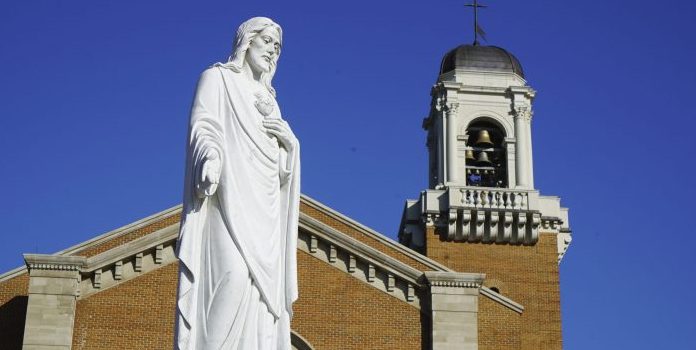(Dmytro “Henry” Aleksandrov, Headline USA) Muskegon Community College in Michigan recently invited David Gushee, a popular professor of Christian ethics at Mercer University, to discuss his new book “Defending Democracy from its Christian Enemies.”
In his book, Gushee argued that Christians have become reactionary and taken anti-democratic stances, according to its online description. He also analyzed “how Christians have discarded their commitment to democracy and bought into authoritarianism.”
The College Fix reported that Gushee has written or co-authored more than 28 books and over 175 academic book chapters and articles. Additionally, he frequently appears on podcasts and news outlets for interviews regarding his work in the religious sphere.
“In 2014, Gushee sparked controversy within conservative Christian circles by advocating for full LGBTQ inclusion in church, theology, and broader culture. His 2020 publication, ‘After Evangelicalism: A Path to a New Christianity,’ served as a guide for individuals undergoing faith deconstruction,” the college’s news release said.
In his far-left and anti-Christian book, Gushee argued he is concerned that many Christians were at the forefront of the Jan. 6, 2021, protest, claiming to act as God’s agents on this planet on behalf of his “representative,” referring to Donald Trump.
Gushee also said that Jan. 6, 2021, was the reason why he decided to write the book.
“The book examines right-wing Christian politics focusing on places and times when reactionary Christians, very unhappy with the direction of modern culture, and unsatisfied with the results of the democratic process, tip over into authoritarian politics,” he said.
Gushee also suggested that Christians should advocate for and preserve legitimate democracy in the public square because he is wary of ways that Christians have supposedly supported authoritarianism in the past, the Fix reported.
On his website, Gushee wrote that he believes the solution to Christian engagement in politics does not lie in secular liberalism, but instead in the practices of “congregational democracy, dissident black Christian politics and covenantal theology.”

